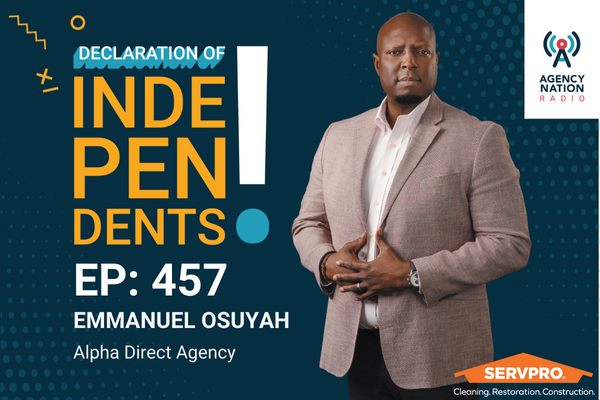Is Employee Ownership Right for Your Agency?

By: Jeff Mowatt
I confess: Before I became a father, I sometimes thought other people’s kids were annoying. Especially when they kicked the back of my chair on an airplane. Or threw a tantrum in a grocery store checkout line. Thankfully, my patience and empathy miraculously increased when my wife and I had kids of our own.
When something is your own, you’re more committed to helping it succeed. So when my clients express frustration about getting staff members to care about their customers, I ask whether those employees have a real stake in the company’s success.
Employee ownership is a non-traditional perpetuation solution that could be a smart option for your agency. Here are the four most common excuses I’ve heard from business owners for why it’s not—and why these excuses shouldn’t prevent you from offering key employees some skin in the game.
1) We already offer commissions. The problem with carrot-and-stick monetary bonuses is they actually prevent the creative thinking required to set your company apart from the competition. Keep in mind: If your company offers commissions, your competitors probably do, too. If your employees think they can make higher commissions working for the company across the street, then your commissions aren’t building any employee loyalty.
2) I don’t want to share profits. I understand if a business owner doesn’t want to give up a portion of what they’ve created, but you’re stepping over dollars to pick up nickels. One of my clients decided early on to help generate loyalty from his best team members by offering employee ownership. The result? One of the most dedicated teams of skilled employees in the construction sector—an industry that, aside from a few recessions, has had endemic shortages of construction professionals. By sharing ownership, you’re not slicing the proverbial profit pie into more pieces—you’re making the company more profitable and building a bigger pie.
3) When employees leave, buying them out is expensive. This is true, but it’s also expensive to recruit and train new employees who aren’t as seasoned as your senior staff. One way to help postpone buyouts—often for decades—is offering shares in your company only for high performers who are willing to sign a non-competition agreement. In other words, to receive shares, they agree that if they do quit, they won’t start or hire on with a competing company for a minimum period—generally three years. It’s a win-win: You give your star employees something enormously valuable, and in turn, they give you their loyalty for the foreseeable future—plus three years beyond.
4) Offering shares is too complicated. Yes, it takes time and legal fees to set up a share structure that includes employee ownership. But that investment is more than offset by the rewards of increasing your company’s selling value. Unlike publicly traded corporations, privately owned companies like yours don’t have potential investors lining up to buy out your shares so you can retire in comfort. Because private company shares aren’t nearly as liquid as those of publicly traded companies, investors are more locked in, and they want to know that senior management will stick around to run things so they can get a return on their investment.
When you set up employees as partial owners, you also create an internal perpetuation plan. By the time you’re ready to retire, employees—particularly senior managers—will have built up equity in the company that can be collectively leveraged to buy out your shares. With a smooth transition and potential in-house buyer, you get to retire knowing your proverbial baby is in good hands.
Bottom line: Look on any street and you can probably tell which homes are occupied by renters versus owners. Owners care more, and it shows. Employee ownership makes working with your company more rewarding for all stakeholders.
Jeff Mowatt is a customer service strategist, Hall of Fame motivational speaker and author of “Becoming a Service Icon in 90 Minutes a Month.”









